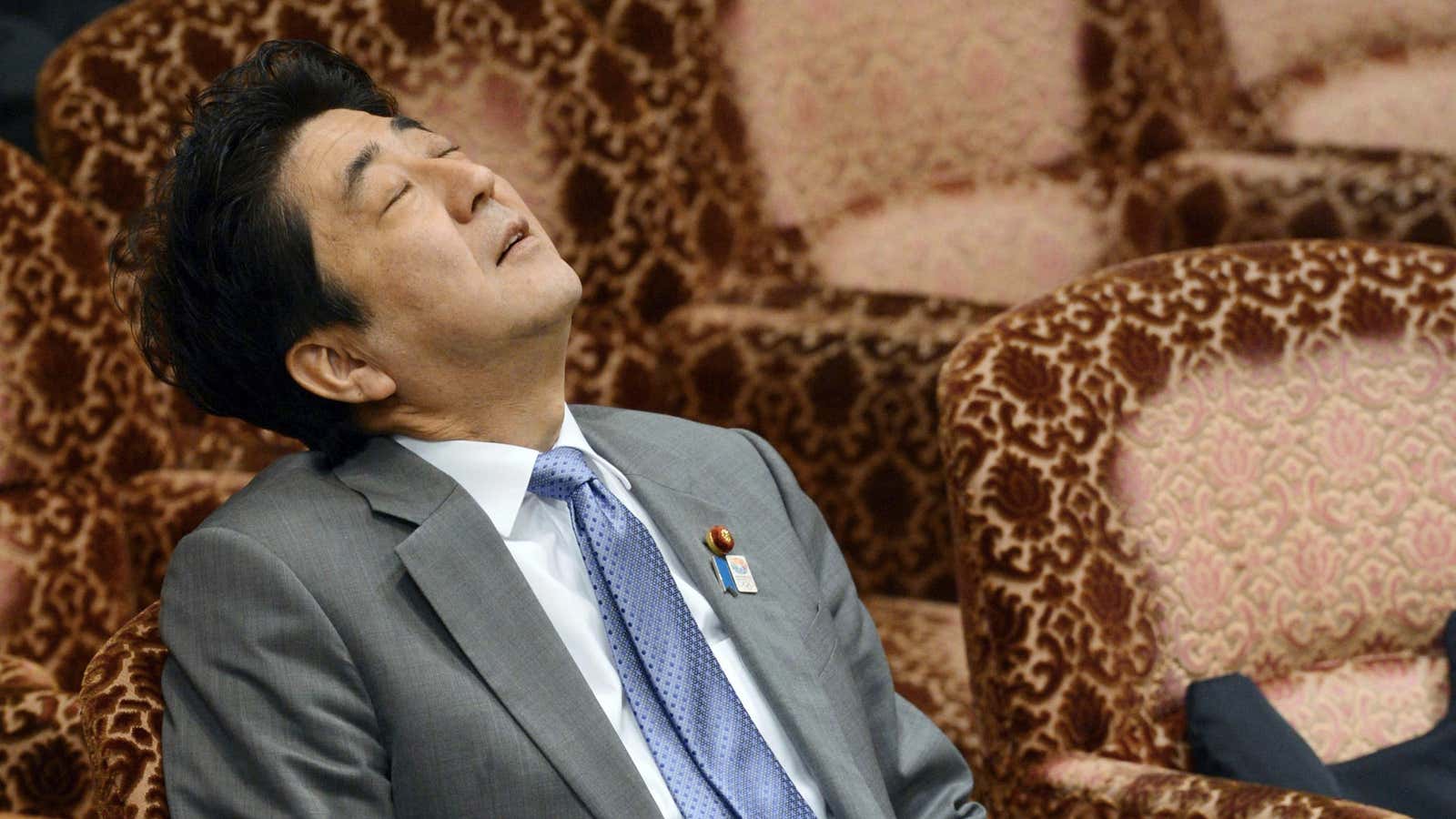Japan’s robust economic growth in the first quarter—3.5% on an annualized basis, well ahead of predictions—is a sign that the radical monetary and fiscal policies of prime minister Shinzo Abe are helping. But if Japan’s growth and accompanying currency devaluation continue, they will have a ripple effect on other Asian economies. And some experts argue that Japan’s problems can’t be solved by simply splashing the cash.
Japan’s newfound confidence means that Japanese outbound investment in Asian emerging markets is likely to increase. But the IMF, World Bank and Asian Development Bank (ADB) have all warned that this could end in tears. ADB managing director Rajat Nag told an audience at the bank’s annual meeting recently that “the positive thing of quantitative easing out of Japan and other economies is that they will start to grow, but we have to be wary of building asset bubbles.”
Then there’s the problem of Japan’s export competitors. As we’ve previously reported, policymakers worldwide are having to deal with the impact of a devalued yen, which has slipped to over ¥100 to the dollar from less than ¥80 in October, making Japanese exports cheaper. Japan’s Toyota is already feeling the benefits, but South Korea is busy cutting interest rates, partly to assist its vehicle and electronics exporters.
Finally, not all economists are convinced that Abenomics will provide more than a temporary boost. Frederic Neumann, co-head of Asian economics at HSBC, wrote in the Financial Times (paywall) last month that while Japan’s “monetary bazooka” is massive, a similar approach to economic stagnation was used before in the 1990s and 2000s. He adds, in the Wall Street Journal (paywall), that Japan’s structural problems—it’s not very attractive to foreign direct investment, for instance, and has high corporate tax—need to be dealt with. If not, “the extra cash to be injected by the Bank of Japan will only hasten the country’s economic demise.” A return to growth in the world’s third largest economy is a good thing, but it comes with strings attached.
